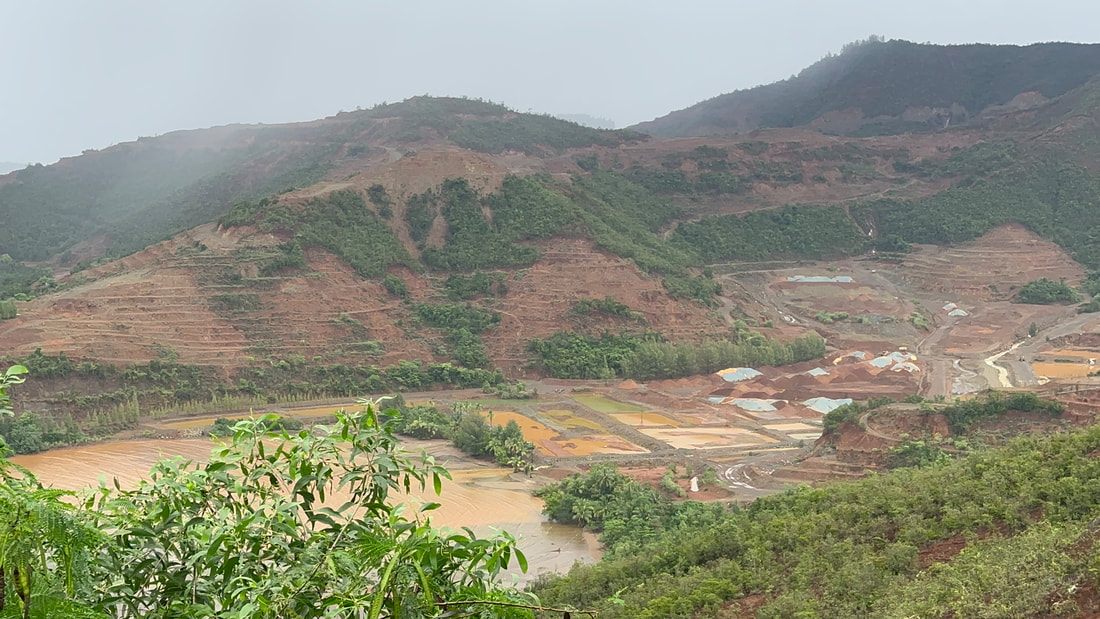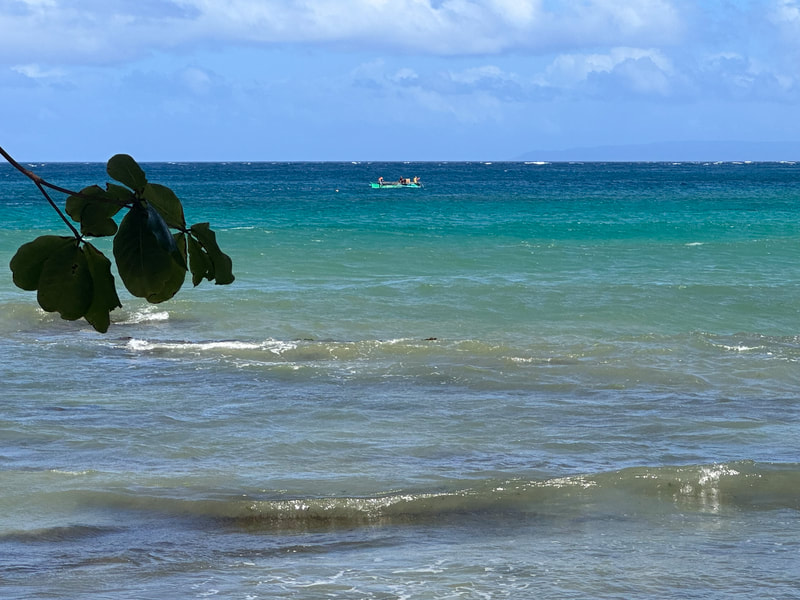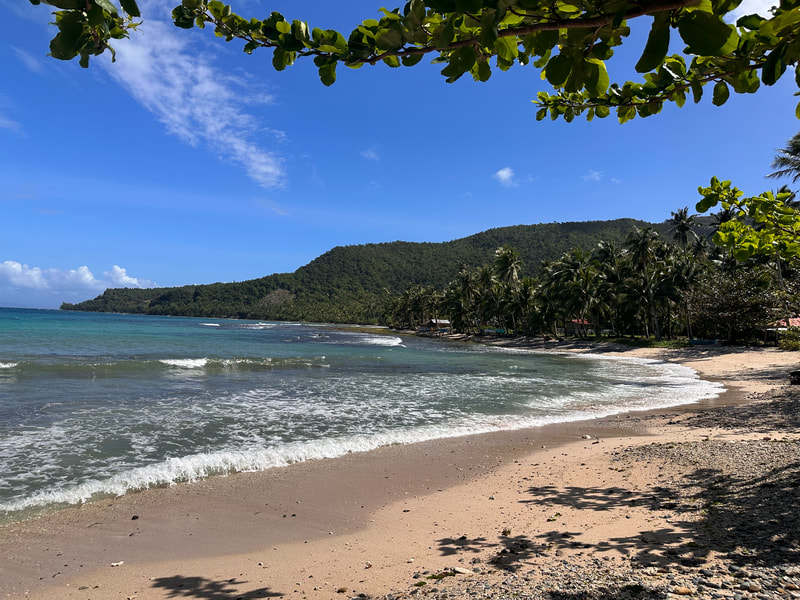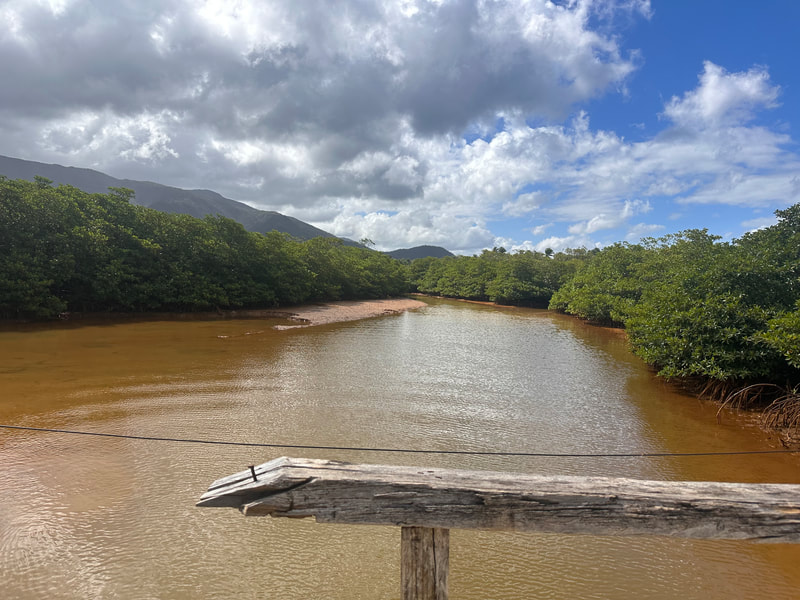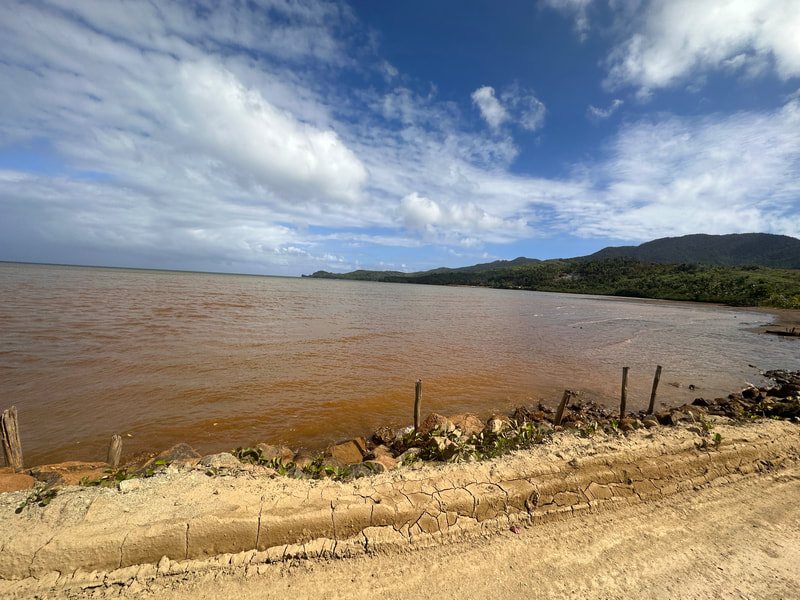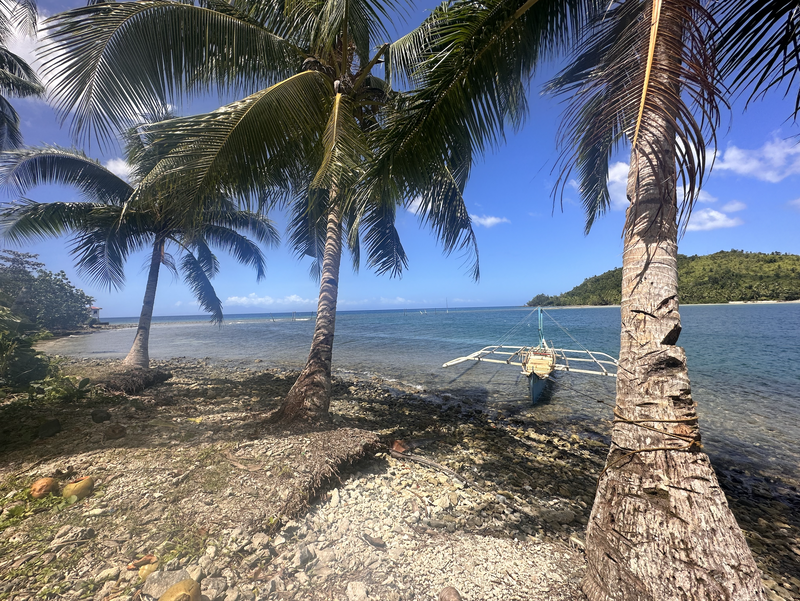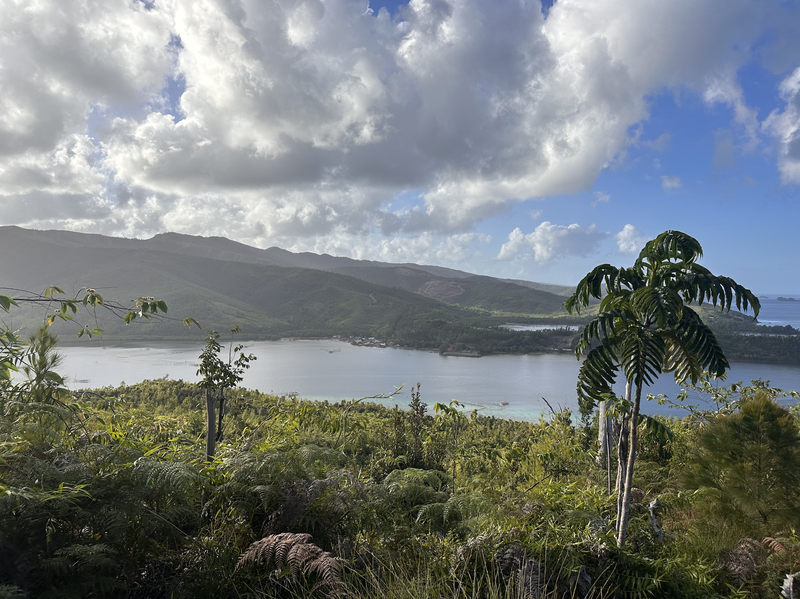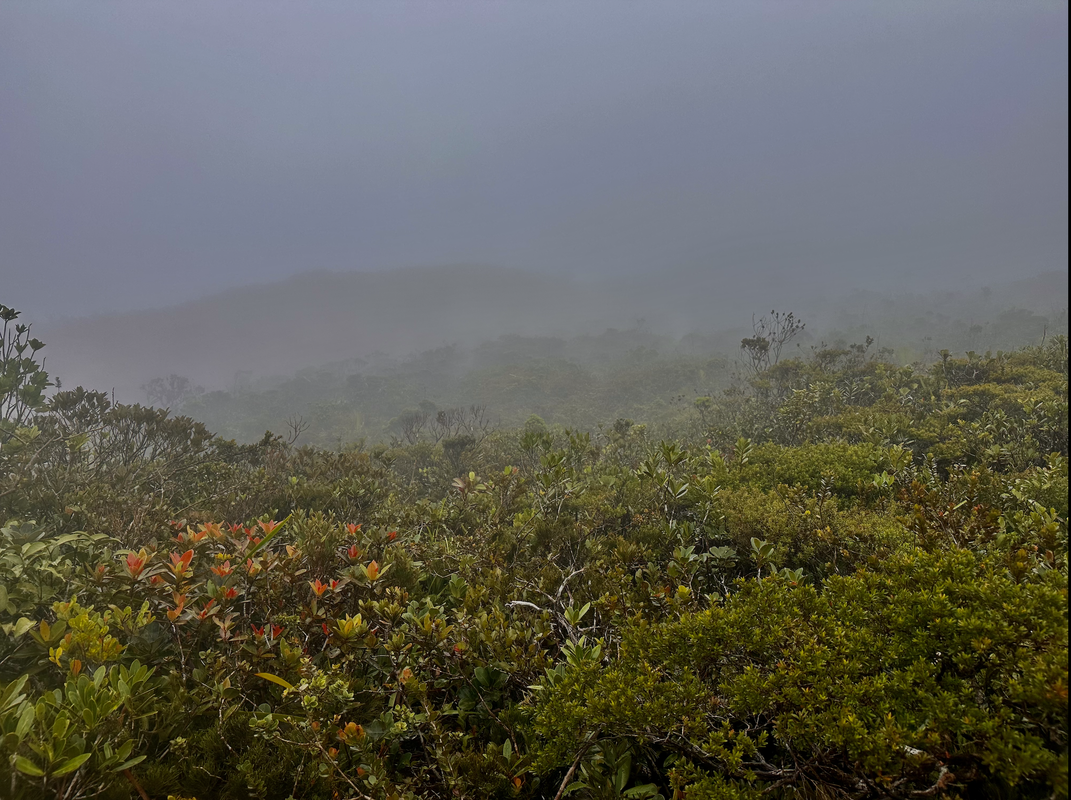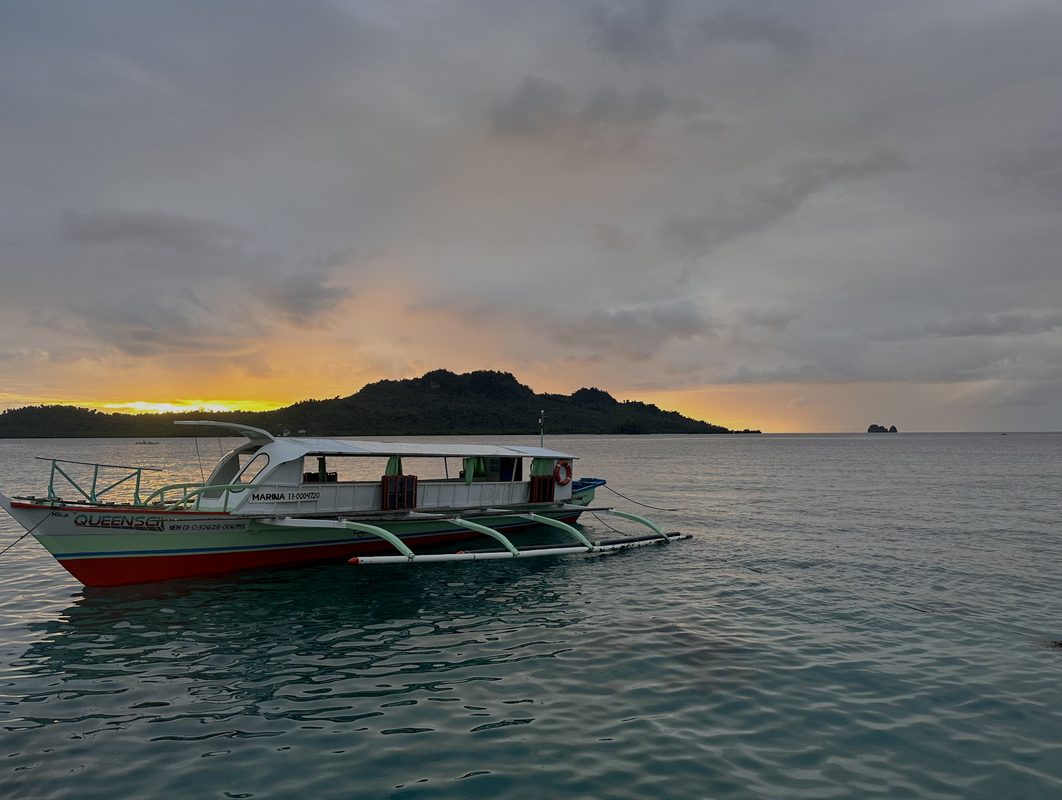|
Last May 11, a landslide occurred in the village of Siana located in the town of Mainit, Surigao del Norte which was reportedly triggered by the failure of the tailings storage facility supervised by the Greenstone Resources Corp. (GRC) and subsidiary of Toronto Ventures Inc. Resources Development Inc. (TVIRD), a publicly listed Canadian mining company. This incident buried numerous houses and displaced at least 50 families who evacuated to the municipal gyms in the towns of Tubod and Mainit.
Bantay Kita stands resolute in its mission to hold both the GRC, TVIRD and relevant government agencies both in the Philippines and Canada regulating mining operations unequivocally accountable for the chain of events culminating in this disaster. We adamantly assert that such calamitous failures in tailings storage facilities could and should have been averted through rigorous oversight by both the mining company, the Mines and Geosciences Bureau and the Canadian government. GRC already has a history of issues related to tailings storage facilities that resulted in the stopping of its operations in the Siana Gold Project for almost two years before getting the clearance to operate once again. This incident, along with the Maco landslide two three months prior on the same island, should serve as a warning to the Department of Environment Resources to further implement robust measures to ensure the safety of host mining communities. Moreover, foreign Canadian mining companies such as TVIRD must be held accountable within home and host states for the social and environmental damages incurred through negligent mining operations. Furthermore, following this tragedy, we assert the urgent need for accountability and justice to be served for the affected communities. The loss of lives, destruction of homes, and devastation of livelihoods necessitate more than superficial expressions of regret or vague commitments to change. It is crucial that those accountable are not only held legally responsible but also subject to the full weight of community justice. The impacted families are entitled to restitution, comprehensive support, and meaningful participation in determining the trajectory of their communities' future. Anything less would constitute a grave injustice and a violation of their fundamental rights. We further urge government agencies and mining companies to undertake Probabilistic Risk Assessment (PRA) approaches to hazard mapping which enables the mapping of multiple scenarios for a particular hazard under climate change. The Probabilistic Risk Assessment Approach to hazard mapping has been recommended in 2017 by the United Nations Office for Disaster Risk Reduction, the Philippine government through the 2017-2022 and 2023-2028 Philippine Development Plans and the 2019 Climate Change Commission resolution, yet implementation has not been effectively disseminated nationwide.
0 Comments
Bantay Kita had the opportunity to visit Taganito in the municipality of Claver to meet various individuals, from municipal employees to the indigenous peoples (IP). The primary aim was to learn more about the consequences of mining activities in the region, whether positive or negative. Claver, a Mining Municipality Originally a small town, it has grown in recent years due to its mining potential. Indeed, mining activities have attracted many individuals to settle in the town and played an important role in its development. In 1939, Claver became part of the Surigao Mineral Reservation [i], which recognized the region for its mining appeal. Just in 2019, Taganito Mining Corp., located in the province of Surigao del Norte, produced 83,052t of mined nickel, representing 25.7% of the total nickel mined in the Philippines. [ii] Since 2008, this mining company has held a Mining Production Sharing Agreement (MPSA) in the municipality of Claver, covering an area of 4,584.5145 hectares of nickel and other associated mineral deposits. [iii] They also signed a memorandum of Agreement (MOA) in 2006 with the Indigenous Ampantrimtu Association since they operate on the Ancestral domains of the Mamanwas. [iv] Under the Indigenous Peoples Rights Act of 1997, indigenous communities have the right to receive a 1% portion of the gross production or output from mining activities, provided they consent to the operation of the mining company on their ancestral lands. [v] According to the National Commission for Indigenous Peoples (NCIP), the ancestral domain in the municipality covers approximately 22,069.06 hectares. [vi] The Mamanwa Indigenous Community This indigenous community is considered one of the oldest in the Philippines. [vii] Most of them live on the island of Mindanao, but they are a rather mobile community that move around a lot. Traditionally, this community places great importance on hunting and gathering, as this was one of their main sources of subsistence. [ix] However, these natural resources are becoming less accessible and are less sufficient to support their daily needs. [x] This means they are more prone to financial hardship due to access to education needed to land jobs in developing municipalities. They are considered the second poorest IP group in the Philippines. [xi] Among the indigenous tribes residing in the Philippines, the Mamanwa stand out as one of the least educated, facing numerous challenges such as malnutrition and discrimination, to name a few. Particularly in Mindanao, they are recognized as one of the most marginalized and vulnerable Indigenous Peoples (IPs). Studies indicate a pressing need for improved educational access to empower them in asserting their rights and improving their economic status. [xii] Enhanced education would foster better leadership and coordination among their communities, boost their capacity to advocate for their ancestral lands and rights. Despite being situated in one of the country's wealthiest regions in terms of natural resources, the Mamanwa of Mindanao struggle with significant poverty. Mindanao, despite its mineral-rich nature, ranks as the second-highest contributor to rural poverty nationwide, with 46% of its population comprising indigenous communities. [xiii] Despite efforts from the mining sector along with initiatives from the civil society, the challenge of holistic local development that includes the indigenous population remains. Impacts of Mining Since these regions are mostly made up of mountains, they are very prone to landslides, which is threatened regularly, most especially during the rainy season, the threat of earthquakes, and the continued denudation of the forests. Cutting down trees without regulation, usually for money or to build roads, can cause forest fires during the dry season. Despite these environmental concerns, mining companies have made significant contributions to local communities through job creation and the construction of new schools and hospitals. [xiv] The municipality of Claver's role in regional development is now focused on the development of the mining industry. Claver has the potential to stimulate economic activities which are essential to the region's mining industry. [xv] While some benefit from these advantages, other sectors also suffer from mining externalities. Part of the local population benefit greatly from mining activities. This mineral-rich region attracts a number of mining companies, creating a variety of employment and development opportunities for the town. These workers are obviously in favor of mining and its benefits since they directly experience the benefits derived from mining activities. On the other hand, they are aware of the consequences of mining activities at some level but are quick to say that they are responding to this problem through various initiatives, including tree replanting. However, this has its limits in terms of effectiveness. The speed of planting does not correspond to the needs of the communities that depend on it for their livelihoods, and we don't know if there is a real effect to counter the already-existing environmental impact of mining. During this visit, the indigenous communities shared that one of the problems they currently face is the destruction of their environment and indigenous habitat. This has a major impact on their daily lives, as it affects their traditional livelihoods and culture. They no longer have access to resources at hand and now have to go further afield to find them. This is a major issue given that they can't go too far away from their houses as they have to look after their children, but above all, the fact that access to resources is limited due to mining activities, to which in some cases they refuse access. Furthermore, these activities lead to the displacement of these communities, which then move further away from their traditional livelihood resources. Therefore, even if not all traditional livelihoods are lost, they are threatened to be lost should there be future expansion of operations. There also seems to be a massive misinterpretation on the actual needs of the communities. For example, a house-building project has been carried out. However, few of the target beneficiaries actually use them since they don't really need them, and they're not part of their traditional way of life. Some mentioned the lack of understanding of certain processes and documents. This just shows that not everything can be resolved by merely receiving royalties and services, but also looking into environmental and cultural impacts that negates any shallow intervention. This reveals glaring disparities between the beneficiaries of economic spin-offs and marginalized indigenous communities, such as the Mamanwa. The latter suffer environmental damage and loss of traditional livelihoods. A more inclusive approach that respects the rights of indigenous communities is needed to mitigate these disparities and promote truly sustainable development for all. This is one of the reasons why BK is continuously engaging with the mining stakeholders to understand the development needs of mining-impacted and benefitting communities. References: [i] Government of the Philippines. n.d. “Historical Development”. Governement of the Philippines. https://claver.gov.ph/about-us/#:~:text=Meanwhile%2C%20in%201939%2C%20the%20Surigao,Gigaquit%20and%20Surigao%20del%20Sur [ii] Moon, Ji Won. 2019. “ The Ministry Industry in the Philippines”. US Geological survey Minerals Yearbook (USGS). https://pubs.usgs.gov/myb/vol3/2019/myb3-2019-philippines.pdf [iii] Environmental Justice (EJ) Atlas Organization. 2022. « Taganito Mining Corporation’s Nickel Operations, Surigao del Norte, Philippines’” EJatlas.https://ejatlas.org/print/taganito-mining-corporations-nickel-mine-surigao-del-nortephilippines [iv] Ibid. [v] Ibid. [vi] Government of the Philippines. n.d. “Chapter 1 – Framework”. Government of the Philippines. https://claver.gov.ph/wp-content/uploads/2021/12/CLUP2014.pdf [vii] Cal State East Bay. n.d. “ Mamanwa”. Cal State East Bay. https://www.csueastbay.edu/museum/virtual-museum/the-philippines/peoples/mamanwa.html [ix] National Commission on Indigenous Peoples. 2021. “Indigenous Cultural Communities “Pagkilala” Recognize Indigenous Peoples and Ancestral Domains”. NCIP. Vol 1(1). [x] Balacuit. Castor V. et al. 2018. “Livelihood and Training Needs of Mamanwa Tribe”. International Journal of Current Research. https://www.researchgate.net/profile/Castor-Balacuit/publication/355367227_LIVELIHOOD_AND_TRAINING_NEEDS_OF_MAMANWA_TRIBE_BALACUIT_ET_AL_2018/links/616ce1fb25467d2f00503b4c/LIVELIHOOD-AND-TRAINING-NEEDS-OF-MAMANWA-TRIBE-BALACUIT-ET-AL-2018.pdf [xi] Ibid. [xii] Ibid. [xiii] Ibid. [xiv] Government of the Philippines. n.d. “Chapter 1 – Framework”. Government of the Philippines. https://claver.gov.ph/wp-content/uploads/2021/12/CLUP2014.pdf [xv] Government of the Philippines. n.d. “ Profile: Municipality of Claver” Governement of the Philippines. https://claver.gov.ph/about-us/ About the author
Camille Thom is currently an intern at Bantay Kita. As of this posting, she is enrolled as a graduate student at the Université de Montréal. Forging Strength: Dinagat Islands Communities' Resilience Against the Ongoing Challenges of Mining3/11/2024 Photos of the Municipality of Loreto, Province of Dinagat Islands. Last February, a week-long fieldwork was facilitated by Bantay Kita within the communities of Loreto, Tubajon, and Libjo in the Province of Dinagat Islands. The aim was to assess the overall developments since the previous visit, address ongoing issues and support livelihood initiatives already underway in these areas. Dinagat Islands, a Region Rich in Resources The Province of Dinagat Islands is renowned for its stunning turquoise waters, rich biodiversity, and ecosystem. With approximately 400 plant species and 100 bird species [1], it serves as a sanctuary for diverse wildlife, including numerous endangered species. Its captivating lagoons, bays, and beaches teem with marine life such as dugongs, manta rays, whale sharks, sea turtles, and dolphins [2]. Additionally, the province boasts remarkable natural landmarks like Mount Redondo, the unique Bonsai Forest. However, alongside its natural beauty, Dinagat Islands is also a mineral reservation area, leading to the presence of widespread mining activities in the region. Numerous mining companies are already engaged in exploration and processing, posing both economic benefits and environmental concerns. The mining industry, while being seen as offering economic opportunities, also brings adverse effects, not only on the environment but also on local communities. Throughout the year, and especially during the mining season, these impacts intensify, manifesting in dust clouds, water contamination, increased mining traffic, and other detrimental effects on the area's ecology and inhabitants. Environmental and Socio-economic Challenges Furthermore, given the region's susceptibility to natural disasters and other climate-related challenges, mining operations only amplify these risks. Local communities are increasingly vulnerable to landslides, floods, deforestation, and water contamination exacerbated by mining activities. These natural resources are vital for the community’s livelihoods, particularly in farming and fishing. For instance, in Loreto, where rice farming and fishing are predominant, the intrusion of nickel mines directly threatens their traditional means of sustenance. However, some communities remain partially dependent on mining activities. Many people find employment in these operations, which are presented as important sources of income, particularly in this region. Nevertheless, problems such as underpaid workers persist, contributing to persistent poverty levels. Although presented as an economic catalyst, mining activities often do not directly benefit the communities concerned. Then who really benefits from these activities if not the communities whose resources are exploited? In this context, communities are disproportionately affected and often feel powerless against the influence of mining companies and government entities. However, in the face of these challenges, communities are resilient, actively seeking alternative sources of income to mitigate their dependence on mining-related activities and are taking action to get their fair share. Water contamination in the Municipality of Loreto. Communities' Resilience Against the Devastating Impact of Mining Some communities have plans to diversify their sources of income towards more sustainable options, such as ecotourism. For example, the community of Imelda has drawn up plans to attract more tourists to its area. These plans include the development of transportation systems to accommodate future visitors, and the construction of a mountain-top lookout. This mountain is part of the reforestation efforts and offers a spectacular view of the wide protected forest and beaches. The locals are motivated to preserve their forests and waters, not only for their livelihoods, but also because they recognize its potential as tourist attractions. They are actively working to develop tourism initiatives, including guided tours, snorkeling and the possibility of observing baby sharks in their natural habitat. These efforts would enable tourists to discover the corals and marine life away from the impact of mining operations, thereby diversifying the community's sources of income. The Marine Protected Area (left photo) and the Mountain Peak (right photo) found in Barangay Imelda, Municipality of Tubajon. As previously mentioned, the region is home to an enormous bonsai forest. Unfortunately, this renowned forest is situated within the former Krominco Inc. mining site in Loreto, which risks diminishing its appeal to tourists. Nevertheless, there is potential to develop the forest as an ecotourism destination, given that its impact on the environment is minimal and it could provide an additional source of income for the community [3]. Furthermore, aware of the negative effects of mining, members of the Loreto People's Organization are in the process of formalizing their group by obtaining registration with the Securities and Exchange Commission (SEC). This step is intended to facilitate access to formal funding from government and private funders. A photo of the Bonsai Forest found within the KROMINCO mines in the Municipality of Loreto. In Libjo, fishermen have undertaken efforts to improve their livelihoods. They are currently building a floating cottage with underwater artificial reefs to encourage fish reproduction and sustain their catches. In addition, they act as Bantay Dagat ("sea watchmen"), in order to prevent other local fishermen from engaging in illegal fishing practices that could potentially have a negative impact. However, the issue of mining continues to have a significant impact on their marine environment. Despite their conservation efforts, nickel mining remains a major challenge, particularly during the mining season going from March to October, meaning that they still need to continue their efforts and initiatives to counter the effects of mining activities with limited resources. Municipality of Libjo, Province of Dinagat Islands. The visit to Dinagat Islands highlighted the region's natural wealth, as well as the challenges posed by mining activities. These activities threaten the environment, health and the livelihoods of local communities. In response, some communities are turning to more sustainable solution and are showing resilience and courage against the destruction of their environment due to mining. Although challenges remain, the commitment of local people to preserving their environment offers hope for a more sustainable future in Dinagat Islands. References: [1] Rainforest Trust. n.d. “Safeguarding the Endangered Rats and Bats of Dinagat”. Rainforest Trust. https://www.rainforesttrust.org/urgent-projects/safeguarding-the-endangered-rats-and-bats-of-dinagat/ [2] Ibid. [3] Mayuga, Jonathan L. 2017. “Renewed hope for Dinagat Islands”. Department of Environment and Natural resources – Foreign-Assisted and Special Projects Services. https://faspselib.denr.gov.ph/sites/default/files/Feb%2012%20%5BBUSINESS%20MIRROR%5D%20Renewed%20hope%20for%20Dinagat%20Islands.pdf About the author
Camille Thom is currently an intern at Bantay Kita. As of this posting, she is enrolled as a graduate student at the Université de Montréal. On Wednesday, February 7th 2024, at approximately 7:40 PM a devastating landslide struck the gold-mining mountain villages in Maco, Davao de Oro in barangays Elizalde, Mainit and Masara which buried homes and two buses carrying over two dozen passengers. Maco’s disaster agency has reported (as of writing) 11 deaths, 110 missing persons and 1,166 families evacuated from their homes. Approximately 31 residents have survived with injuries.
Standing in unwavering solidarity with all community members affected by this catastrophe, Bantay Kita believes in holding government agencies and mining companies accountable to adhere to the utmost standards of disaster risk management and hazard assessments in mining areas. In the wake of escalating natural calamities, exacerbated by the climate crisis, and further intensified by extractive industry operations, we call on mining companies and government officials to place paramount importance on community safety, protection and safeguarding of climate mitigating ecosystems. The impacted region was close to a mining site that employed people in three shifts to run its 24- hour operations. Mine workers from APEX Mining Co. Inc. Maco Gold Mine have been identified as amongst the missing persons. The mine workers were waiting to be transported home in two buses when the landslide struck and buried the coaches. The landslide in Maco was induced by easterlies, torrential rains and flash floods occurring in Davao Region, SOCSKSARGEN, Agusan del Sur, Agusan del Norte, Southern Leyte, Dinagat Islands, Surigao del Norte and Surigao del Sur. The mountainous terrain, heavy rainfall, widespread deforestation and blasting operations in the mining area are key triggers to landslides. Landslides in Masara were also triggered in 2008 and 2013. Another landslide happened five days before the big tragedy, however mining operations continued. Indigenous and local communities hosting large-scale mining continue to bear the brunt of natural disasters from climate catastrophe. In this case, indigenous communities of the Mansaka tribe are amongst the most vulnerable as the community faces forcible evacuation due to this landslide. We further urge government agencies and mining companies to undertake Probabilistic Risk Assessment (PRA) approaches to hazard mapping which enables the mapping of multiple scenarios for a particular hazard under climate change. The Probabilistic Risk Assessment Approach to hazard mapping has been recommended in 2017 by the United Nations Office for Disaster Risk Reduction, the Philippine government through the 2017-2022 and 2023-2028 Philippine Development Plans and the 2019 Climate Change Commission resolution, yet implementation has not been effectively disseminated nationwide. As a mineral-rich country, the Philippines draws significant mining investments but raises environmental and socio-economic concerns, especially for indigenous communities in mining regions. Bantay Kita (BK) partners with these communities in order to develop projects focused on providing tools for socio-economic and cultural development. One of BK's projects targets indigenous livelihoods affected by mining, promoting new technical skills to reduce dependency on mining activities. During my immersion experience, I had the opportunity to visit Jabonga, Santiago, and Anticala tribes, witnessing one of these initiatives in action. What do these three communities have in common? They all host extractive operations. Jabonga and Santiago Host rich natural resources and prospering through traditional livelihoods that provide most of the community's needs, it's important to avoid dependence on mining companies and find solutions that reduce this dependence. The ultimate aim of this visit was to set up a sewing and beading workshop for the women of the communities. As such, last December, Bantay Kita donated two (2) sewing machines to the Mamanwa & Manobo communities. The aim is to teach them how to use these machines so that they can first meet their own needs (e.g., their family's needs) and then eventually, when they are more comfortable, they can produce to sell. Like sewing products, the goal of a beading workshops is to teach them this new skill to eventually sell. Once this art is mastered, these traditional jewelry pieces hold significant value. For example, a necklace can fetch up to around 5,000 PHP. Therefore, the end goal is for them to be able to produce enough to eventually enhance their livelihood. Anticala Although this initial meeting was not a workshop like the previous ones, I still learned a lot about this community and some of BK's projects. During this meeting, I had the chance to visit part of the community's land, accompanied by people from the community itself. I was able to visit the watershed and learn more about the community's resource management and related challenges. While visiting the community, I learned more about certain livelihood projects, including tree planting across their land. This project was developed with the aim of developing agro-ecological practices to diversify crop production and, in due course, develop their livelihoods. Immersion Experience Before my initial meetings, I had certain questions in mind about some aspects. For instance, how would these activities be concretely beneficial in the long-term and integrated into their daily lives? How would cultures and traditions be taken into account in the development of these workshop? Would the communities be receptive to these workshops and sharing their experience with me, an “outsider”? However, following the meetings, I noticed several other interesting points that addressed my questions. For example, one of the first things I observed during the workshops is that they primarily focus only on women. As a matter of fact, mining activities affect many people, but often the most vulnerable are women, particularly those from indigenous communities in this context. These specific workshops focus on integrating women into development activities and providing them with equal opportunities for growth. Furthermore, I noticed that the cultural aspect had been included in the activity. For instance, not only were the activities led by two women from the Manobo tribe, but one of the workshops focused on beadwork, specifically Panuhugtuhog (Barcena, 2023), a traditional form of beadwork from the Manobo tribe. It’s a great way to ensure that cultures and traditions are respected while incorporating new skill to ensure livelihood. Apart from that, as a foreign intern, I was a bit apprehensive about how communities would respond to sharing with me, especially due to the language barrier. However, participants seemed receptive not only to participate to the workshops but also to sharing the difficulties and challenges that the communities were facing. During my visits, I also had the opportunity to visit certain places like the hot springs in Santiago and learn more about the importance of preserving natural resources, especially as a means of sustenance for these communities. I also learned more about about the resource management process and overall resource projects such as the cacao and abaca plantation which is one of the major livelihood activities. In short, despite the fact that I was a foreigner and that some subjects can be sensitive, the communities were very welcoming and didn't hesitate to share with me and seemed mostly curious. 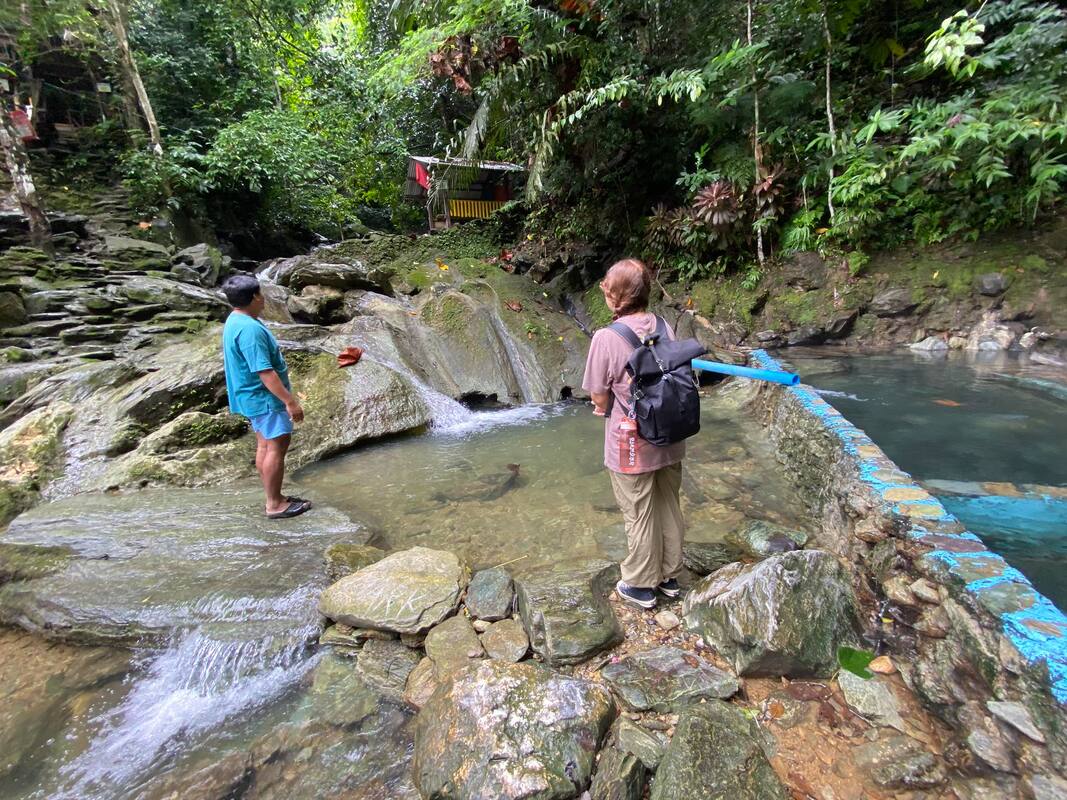 Bibliography Barcena, Nida Grace P. 2023. “Panuhugtuhog: Keeping Manobo's traditional beadworks sustainable”. PIA. https://pia.gov.ph/features/2023/08/11/panuhugtuhog-keeping-manobos-traditional-beadworks-sustainable About the author
Camille Thom is currently an intern at Bantay Kita. As of this posting, she is enrolled as a graduate student at the Université de Montréal. |
Previous Posts
May 2024
Topics
All
|
What We Do |
Know More |
About Us |
Contact Us
[email protected] | +(63) 917 5105 879 1402 West Trade Building, West Avenue, Brgy. Phil-Am, Quezon City, Philippines |

